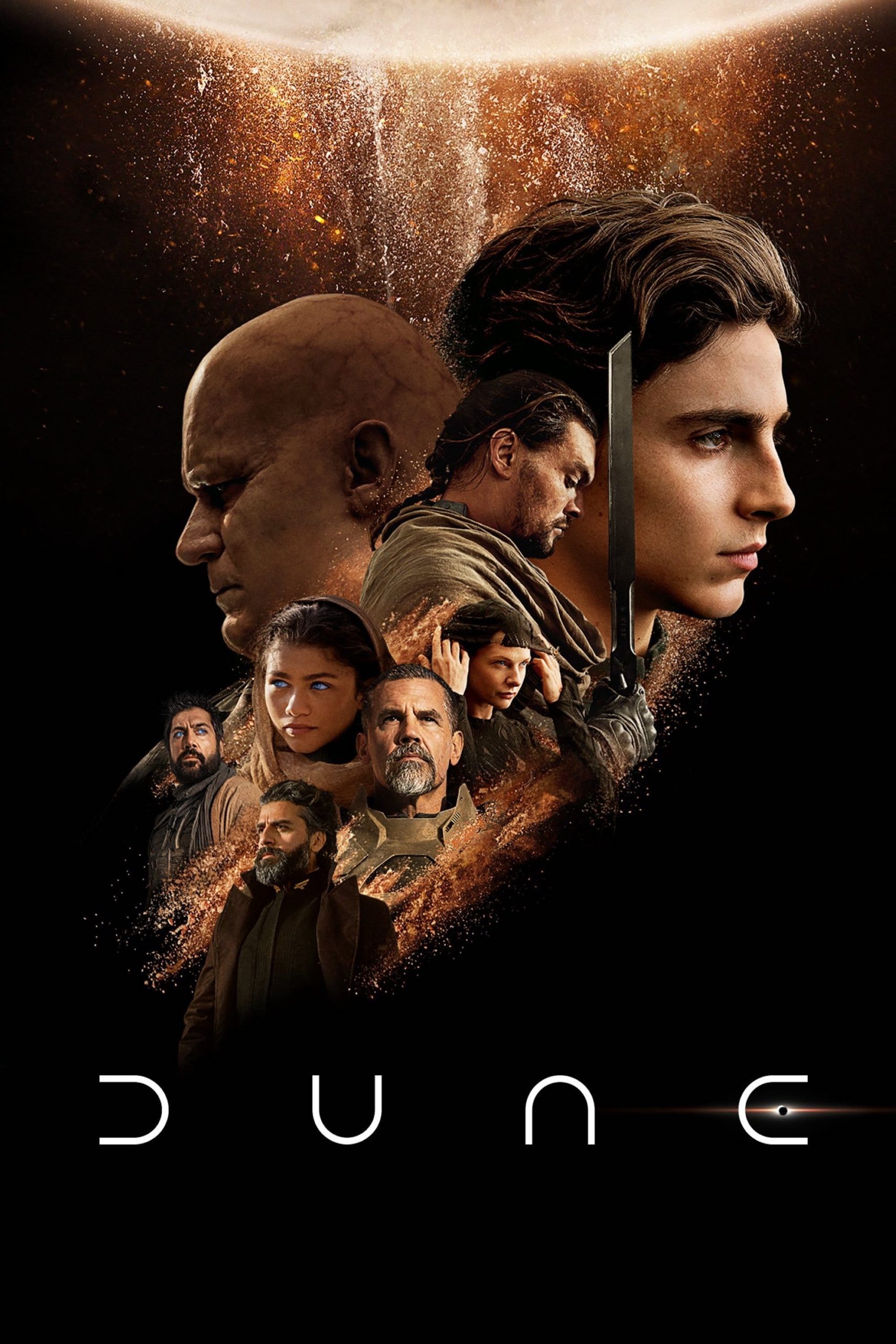
18 Nov Dune review by Jim Washburn
BLUF: Utterly fantastic, next-level science fiction; among the best literary adaptations ever. Everyone involved brought their A-game and have created a masterpiece.
Denis Villeneuve has methodically constructed a consistently excellent film repertoire that seems to indicate that he had a singular goal: adapting Frank Herbert’s Dune. His instinct for intense character work and unconventional storytelling was evidenced in Sicario. His penchant for character-driven science-fiction was infused into Arrival. And with Blade Runner 2049, Villeneuve arguably crafted a better film than the original, with a scale and scope that vastly expanded on the 1982 classic. All the skills he demonstrated in these films are brought to bear in Dune, a masterclass in focused filmmaking on virtually every level. And all of this based on a 1965 book with multiple interim adaptations, most of which have failed in ways that Villeneuve succeeds.
Ridley Scott’s Blade Runner has frequently been cited as the inspiration for dozens of science-fiction films for decades, refencing the cinematography, character work, science-fiction roots, forward-looking technology and social issues, etc. The list goes on, all due to a film that is not necessarily universally beloved. Herbert’s Dune is similar: the book is suitably functional writing, but the world and lore it contains was truly original, weaving together themes and concepts that have also inspired many other works of film and television, notably George Lucas’ Star Wars.
In the simplest terms, Dune tells the story of Paul Atreides, the heir of Duke Leto Atreides, who is chosen to assume control of the planet Arrakis. Also known as Dune, it is the most important planet in the galaxy and the only source of mélange, a spice that permits interstellar travel, the foundation of maintaining and profiting from a galactic empire. However, Leto has been set up to fail as a power-play by the emperor to eliminate powerful houses under his diminishing control. Arrakis’ prior stewards, led by Baron Harkonen, utilize the opportunity to crush House Atreides and re-assume control of Arrakis.
What is Paul’s role in all this political play? While his father is the powerful leader of House Atreides, his mother, Jessica, is a member of the Bene Gesserit, a matriarchy of powerful witches who serve as advisors across the empire, while also pursuing their own political ends. Jessica defied the Bene Gesserit by having a son, Paul, and training him in their ways. Paul’s latent abilities are buried deep inside, but as they emerge, they seemingly fulfill many prophesies regarding the advent of an incredibly powerful being who can use spice to bend time and space.
My personal favorite scene in the film is early on, when Paul is tested by the Bene Gesserit to ascertain whether he is truly human and in control of his instincts. The test involves undergoing extreme pain, and while Paul passes (despite being tested beyond what anyone else has endured), there is moment in the film when Villeneuve shows that pain and adversity awaken something deep within Paul; something that is a harbinger of the leader he can become, should he choose to embrace and master these latent abilities. Everything about the scene conveys exactly what is necessary to establish one of the core themes of the book: the fires of adversity forge the power to rise above any challenge. And throughout the rest of the film, we see Paul walk this path.
Villeneuve’s Dune tells Paul’s story, and does so very, very well. Timothée Chalamet turns in a terrific performance as Paul, and his journey through this adaptation of the first half of the book is, for lack of a better word, flawless. Villeneuve has crafted a film that combines many characters, complex themes, a dense narrative, and objectively esoteric science-fiction tropes into a two-hour and forty-five-minute epic. Villeneuve’s greatest accomplishment is how easy he makes this task seem from start to finish. The pacing, editing, tone, and overall feel of the movie are so highly accomplished that the audience can focus entirely on the characters and narrative. This level of technical expertise is what is missing in most new science-fiction franchise kick-offs.
There is so much more to the movie that I’m not touching on but spoiling any of it would be a disservice. Seeing the film in IMAX was both remarkable and overwhelming the first time, and even better the second time. The cinematography, Hans Zimmer’s score, the world-building—everything came together. Even Villeneuve’s direction leans heavily into as much practical work as possible, with the excellent CGI functionally invisible. The entire film is an experience to behold and even stripped of the science-fiction elements is an excellent political thriller with social commentary on themes that resonate today.
There is no way to overstate it: Dune is a masterpiece, and the only downside is that Part 2 is two years off.
Pros:
- Incredible adaptation of a dense, complex piece of science-fiction literature
- All-encompassing world-building that is faithful to the book, but also well-designed for the screen
- Editing, pacing, character work, and special effects that are complex but made to look easy
- Terrific performances all around
Cons:
- The two-year wait until the first of a rumored two sequels
Rating: 5/5
Movies that I consider perfect are few and far between. Whether the sequels maintain quality cannot diminish the remarkable achievement Villeneuve and company have accomplished.
Review by Jim Washburn


No Comments